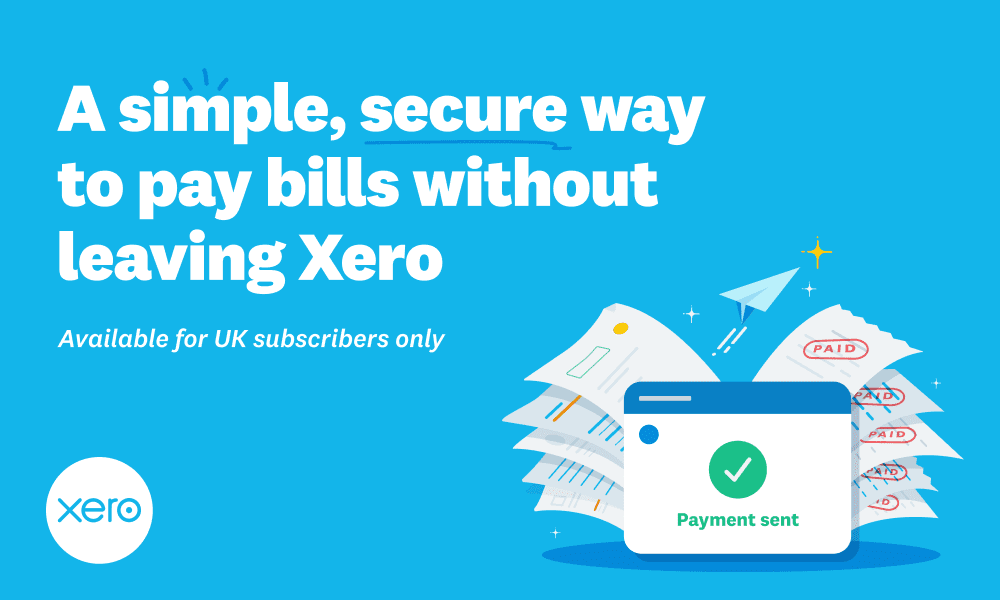How to pay your bills faster and easier with Xero and open banking
If you’re a small business owner in the UK, you know how time-consuming and tedious it can be to pay your bills. You have to log in to your online...

Complete accounting solutions focussed on profit and growth
Inventory management systems play a crucial role in thriving product businesses
Automating your core systems is the key to efficiency and effectiveness

Scalable software that grows with you
Product and inventory software that makes sense
Seamless integrations and automations

Whether they use a single solution or a full end-to-end integration of multiple software packages we are proud to be a part of our client's success.

Put simply, the Open Banking standard means big banks need to create secure channels for access to bank account data. It means businesses and individuals will be able to share their banking data more easily, allowing them to take advantage of cheaper access to capital and financial technology.
The new Open Banking standard changes how banks share data, and how third parties access it. The UK’s Competition and Markets Authority (CMA) adopted Open Banking to increase competition and give people more choice, promoting the development and use of new financial technologies.
Open Banking makes access to banking data free and secure, with only the permission of the account holder needed to provide next-generation services. Open banking regulations are in place to enable the transfer of ownership of account information and data from the banks to the customer.
Open banking also lets people share their own transaction data with other banks and third parties, but securely. For example: you are never providing your bank with your log-in details to a website eg. Amazon, and equally you are never providing the website with your log-in details for your bank account.
You are taking advantage of a technology called OAuth, which is a bit like what you might use if you are accessing a site using your Facebook credentials, and that enables the payment to be settled directly from your bank account. This enables secure access to digital services, meaning you can bypass your card issuer. On the plus side, that ought to mean costs levied by the card issuer are taken out of the equation, and may mean good pricing for consumers or more margin for retailers.
Improved Financial Services
Open banking is essential for improving financial services and competition. It is a set of standards that make it easier for retail customers to:
Not only do businesses need solid financial data for compliance, accurate data can provide insights into business health and pave the way for the next stage of growth. Fast forward to where the likes of Iwoca, with the client’s permission, are able to digitally access the data in Xero. They are building the machine learning capabilities that will enable them to access bank account data and real-time accounting data securely. Managers can be kept informed about finances on their mobiles and they are able to leverage new technology to provide better services for their customers.
Open banking means businesses have access to a wider range of tools than ever before, being able to choose from more than 700 apps and lenders. So they can find the tools that fit their business, rather than having to make their business fit around apps and services designed for much larger enterprises.
N.B. Open Banking is hugely significant for the accounting profession. It opens up big opportunities for accountants to harness the power of digital technologies.
Real Accountability
Third parties who want to offer payment services and aggregation of bank data under Open Banking will need to register with the Financial Conduct Authority.
Open banking is making it easier to process and interpret financial information, and turn data into a valuable commodity as a result.
These tools and services directly support the growth of virtual CFO outsourcing services for accountants wishing to do more for their clients.
Improved View of Cash Flow
Catalysed by Open Banking, a general proliferation in the provision of APIs between banks, fintechs, and accounting software providers will allow much more sophisticated analysis of cash flow. Lenders will have access to richer business data so they can make thorough assessments of credit risk.
Streamlined Applications
It is not new to see accountants offering advice and supporting applications for credit or funding, but new tools will empower accountants to predict when a business might need more working capital. Streamlined application processes and pre-approved credit products will greatly improve timely access to that capital. This means accountants are being asked more questions like “what banks should I go to?”, “which payment service should I use” and “should I be accessing capital from a lender like Iwoca or from my bank”. This is a fantastic opportunity because it broadens the way in which accountants can add value to their customers.
Xero welcomes Open Banking, as it will achieve some of the benefits Xero has been delivering to its subscribers for the last ten years, e.g. helping businesses to:
Xero has always believed that open data equals better services for both small businesses and their advisors. Xero’s direct bank feeds and app marketplace have been helping subscribers reap the benefits of open banking for the last decade. Direct bank feeds provide a flow of transactional data streamlining bank reconciliations, expense management and cash flow visibility, without third-party tools. Furthermore, Xero’s open API provides secure access to accounts data, making it easier for developers and lenders to innovate. And not having to negotiate with big banks to gain access to that data means it’s easier for startups to compete with global technology companies.
Xero was started in order to change the game for small business. Their user-friendly cloud-based accounting software connects people with the right numbers anytime, anywhere, on any device. For accountants and bookkeepers, Xero helps build a trusted relationship with small business clients through online collaboration. They are proud to be helping over 1 million subscribers worldwide transform the way they do business!
For more information about Xero, click here. For help with Xero installation or integration at your business, contact us here.

If you’re a small business owner in the UK, you know how time-consuming and tedious it can be to pay your bills. You have to log in to your online...

Xero can integrate with Hubspot, helping to make your customer relationship management software even more intelligent.

Cloud computing really means using software that is processing in another hardware location.